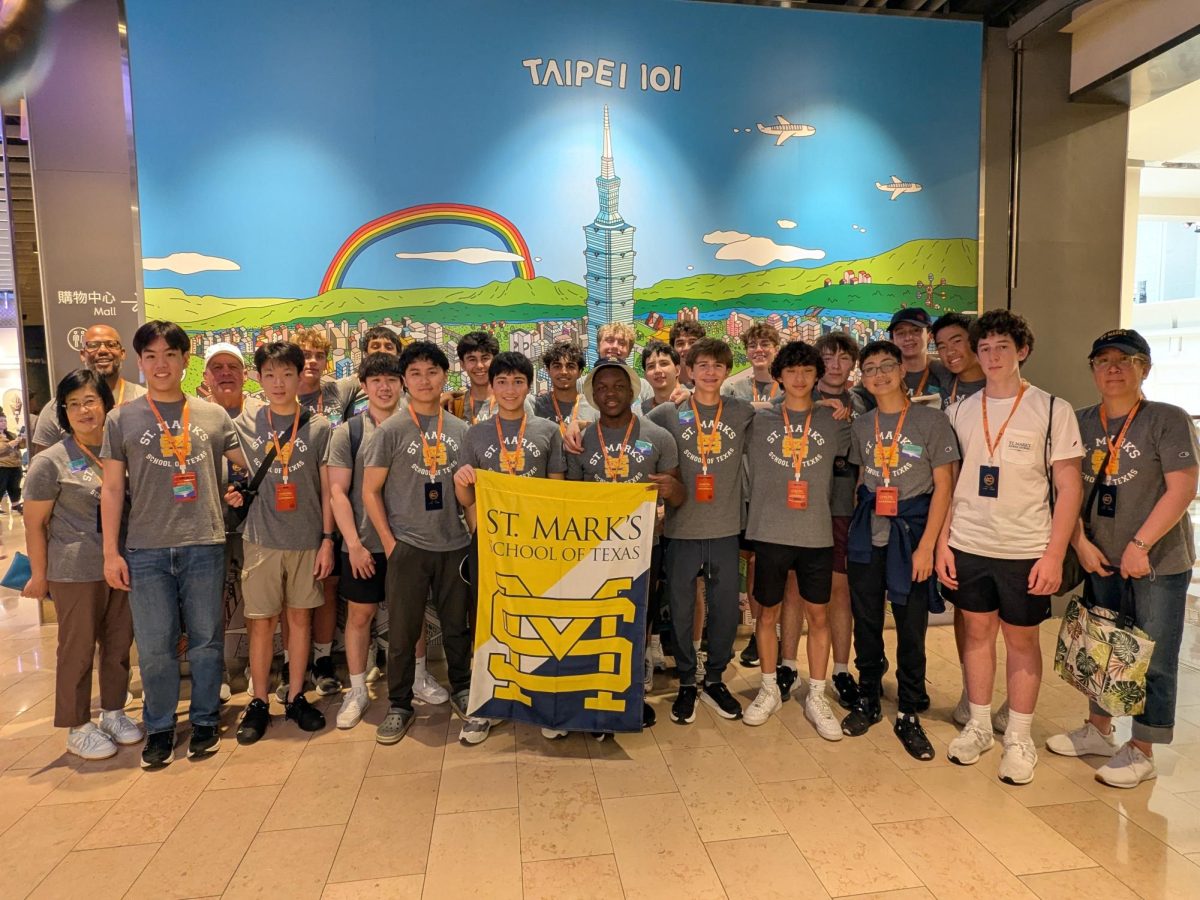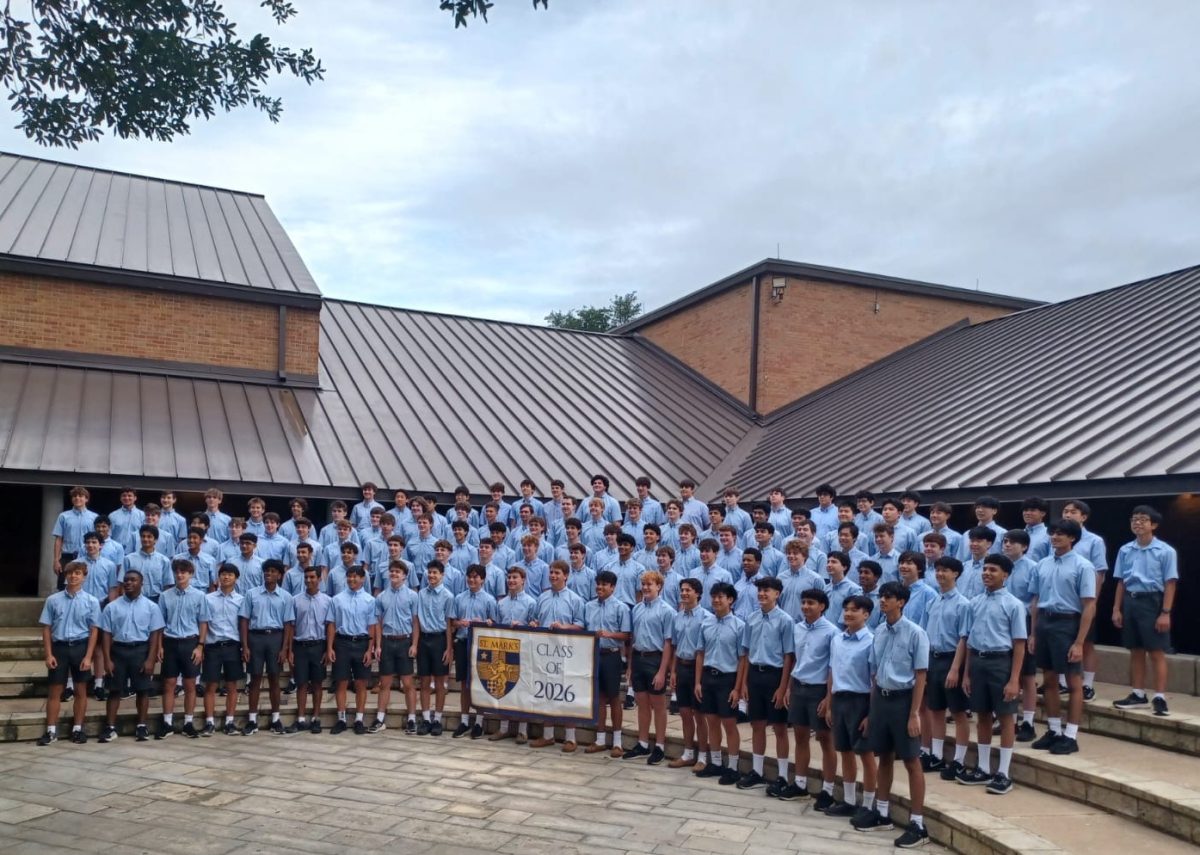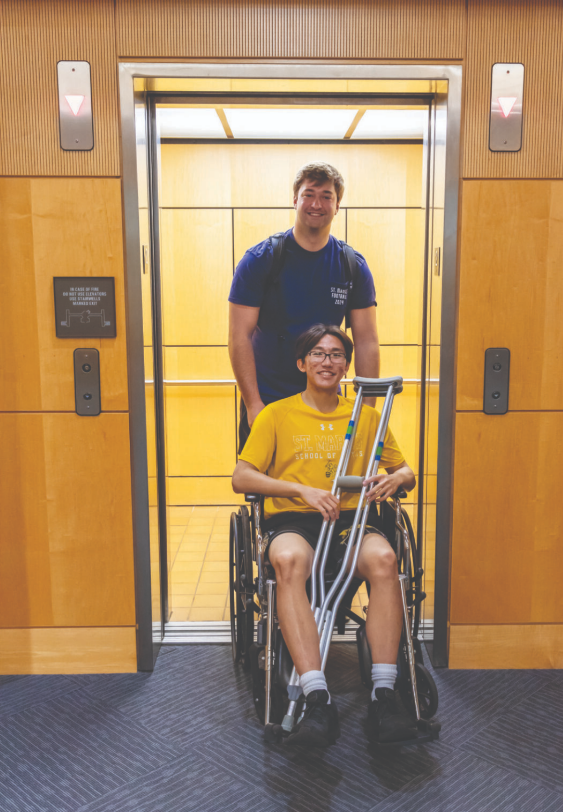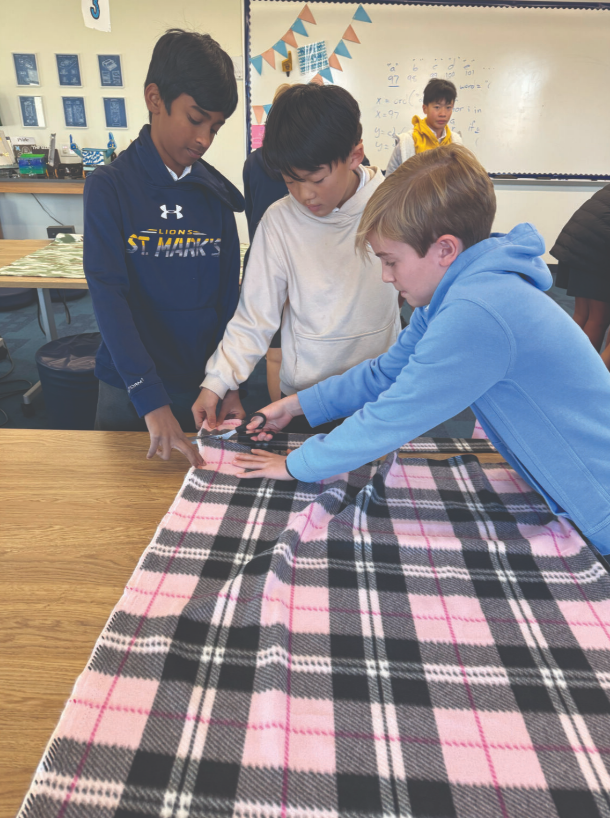Summer break. A time for the beach, a time for vacations – a time for everything but work. Even when Marksmen do take up side jobs, these are usually leisurely activities they enjoy spending time doing, complementing their lax summer days rather than taking over their daily routine. Working as a cashier. A lifeguard. A referee. But rather than following suit in the typical teenage summer, some Marksmen have dedicated significant portions of their break to labor-intensive work. While it may not fit the definition of an ordinary summer, it is something that provides them with unique opportunities.
For junior Asher Babilla, his summer was not spent taking peoples’ orders at Chick-fil-A or listening to the noises of kids splashing around in the pool from a lifeguard post. Instead, he walked straight into his dad’s sports equipment warehouse.
The previously carefree days of lounging around the house? Gone. Replaced by hours of rigorous labor. Waking up at noon? Nonexistent — working for multiple weeks took away many blissful mornings that most Marksmen got to relish. His summer schedule was characterized by a truly demanding time commitment, one that continued throughout the weekdays at a relentless pace.
“I woke up at four in the morning,” Babilla said. “The hours I worked were 5 a.m. to 2:30 p.m. Monday through Thursday. Friday was 5 a.m. to 9 a.m. because from Monday through Thursday, I was working a nine-and-a-half hour shift. On Friday, there were no breaks, so it’s four hours straight. Basically, I worked a 40-hour week.”
The job came with its surprises, as the seemingly infinite long work days consisted of tasks that Babilla did not expect. Contrary to his initial thoughts, he spent a considerable amount of time transforming the warehouse into an oasis of spotless floors and shining aisles.
“A surprising thing on the job was cleaning the warehouse,” Babilla said. “You don’t even see dust on the floor. It was super clean because if there wasn’t a truck to unload, there were about five or six guys cleaning the warehouse, which was something that I really didn’t expect. But the hardest part of the job, which is what we did for pretty much most of the time, was unloading the 18-wheelers, putting the packages on pallets, and then moving the pallets to where they needed to be.”
But even though the hard labor served as the most prominent aspect of Babilla’s new routine, the completely unfamiliar warehouse atmosphere paved the way for more challenges when interacting with the other workers there.
“A lot of the guys there didn’t speak English,” Babilla said. “There was a Mexican, a Venezuelan, and a guy from Nigeria, so the communication was different. For some of the guys, the only words they knew were: “Morning,” “break” and “food.” Our communication was basically just hand gestures. But some people said words in Spanish that I slowly started to understand what they were talking about.”
In addition to language barriers that required Babilla to adapt, what made his warehouse experience truly remarkable was the multitude of diverse perspectives that surfaced, allowing him to contemplate his outlooks on his school life and future while giving him a sense of what reality may be for many people in the world.
“The second week I’m there, one of the guys goes, ‘Hey, why are you working here? Are you trying to pay for your books?’ They thought I was a random high schooler who couldn’t afford his books,” Babilla said. “And that same guy later that week says, ‘So after high school do you plan on coming back here and working?’ I always thought that college had never been a doubt in my mind, but to this guy, college wasn’t even a thought to him. He couldn’t see someone going to college after high school.”
By being immersed in an environment so different from that of the school, Babilla recognizes the sheer amount of privileges that the school’s community offers.
“Everyone tells us how lucky we are,” Babilla said. “I always thought about it but I never really understood it.”
In retrospect of his time working in his dad’s warehouse over the summer, Babilla believes students should attempt to reach for job opportunities beyond the confines of their everyday communities and safe havens.
“[Working in a warehouse] is manual labor,” Babilla said. “Anybody can do it, and it doesn’t matter who you are, which is such a different concept that St. Mark’s doesn’t really teach. And if you’re looking for summer jobs, don’t count anything out. If you told me I should go work in a warehouse, I would ask, ‘Why would I work in a warehouse when I could go work at Torchy’s but make five dollars less?’ Any job experience is job experience, and getting out of your comfort zone to do something that you have never done before can really change your perspective on things.”






